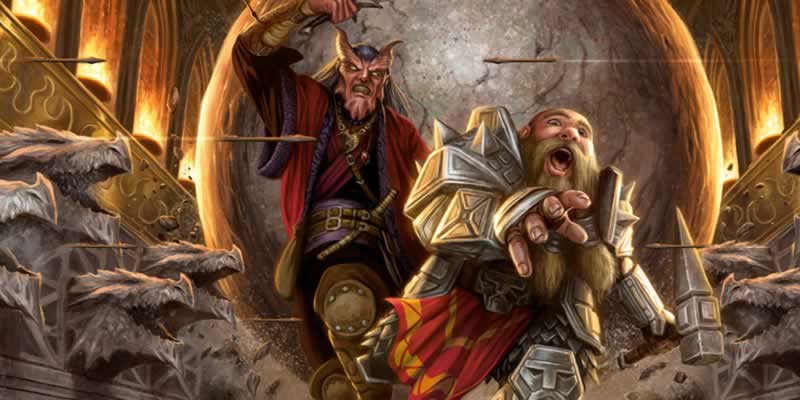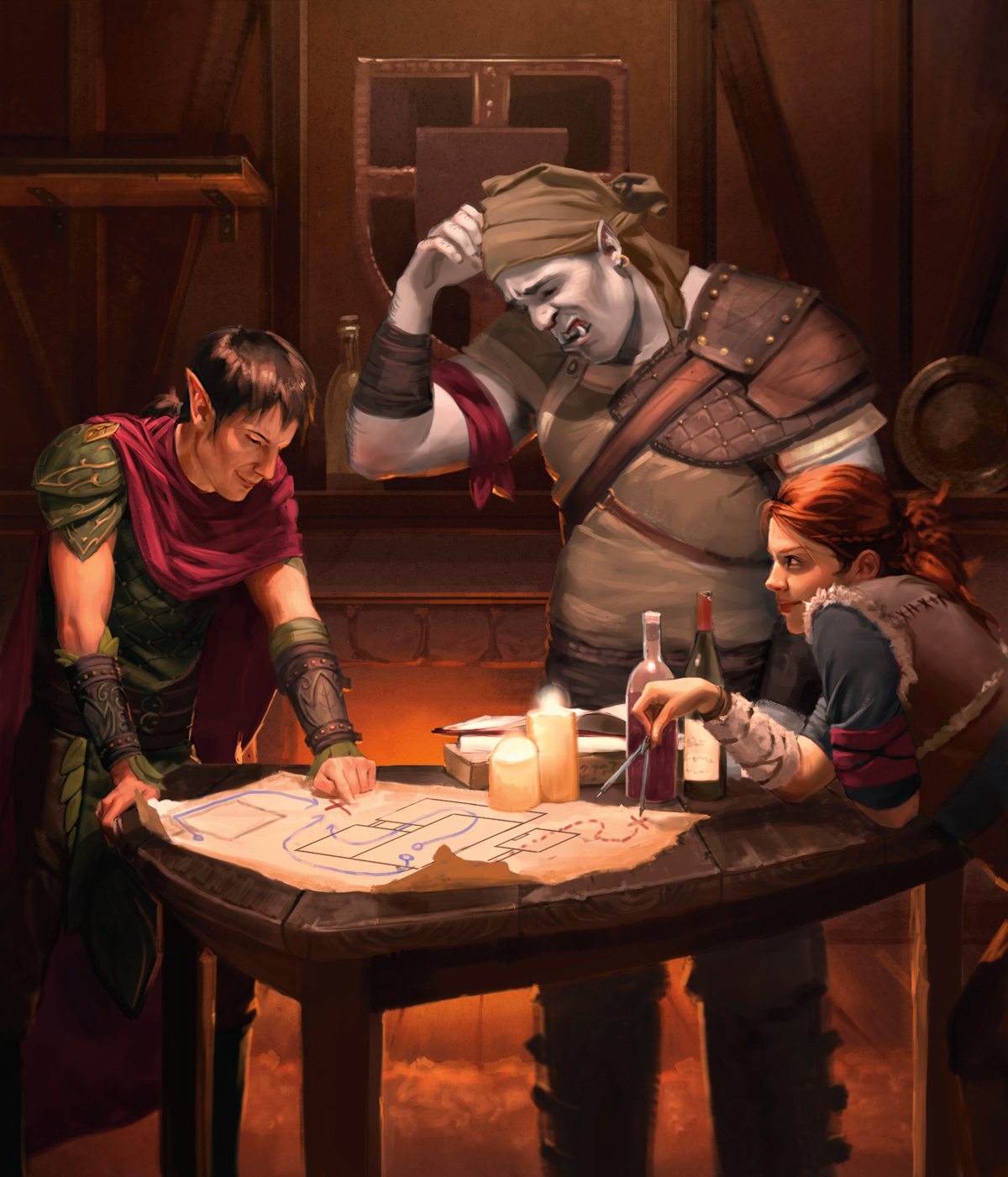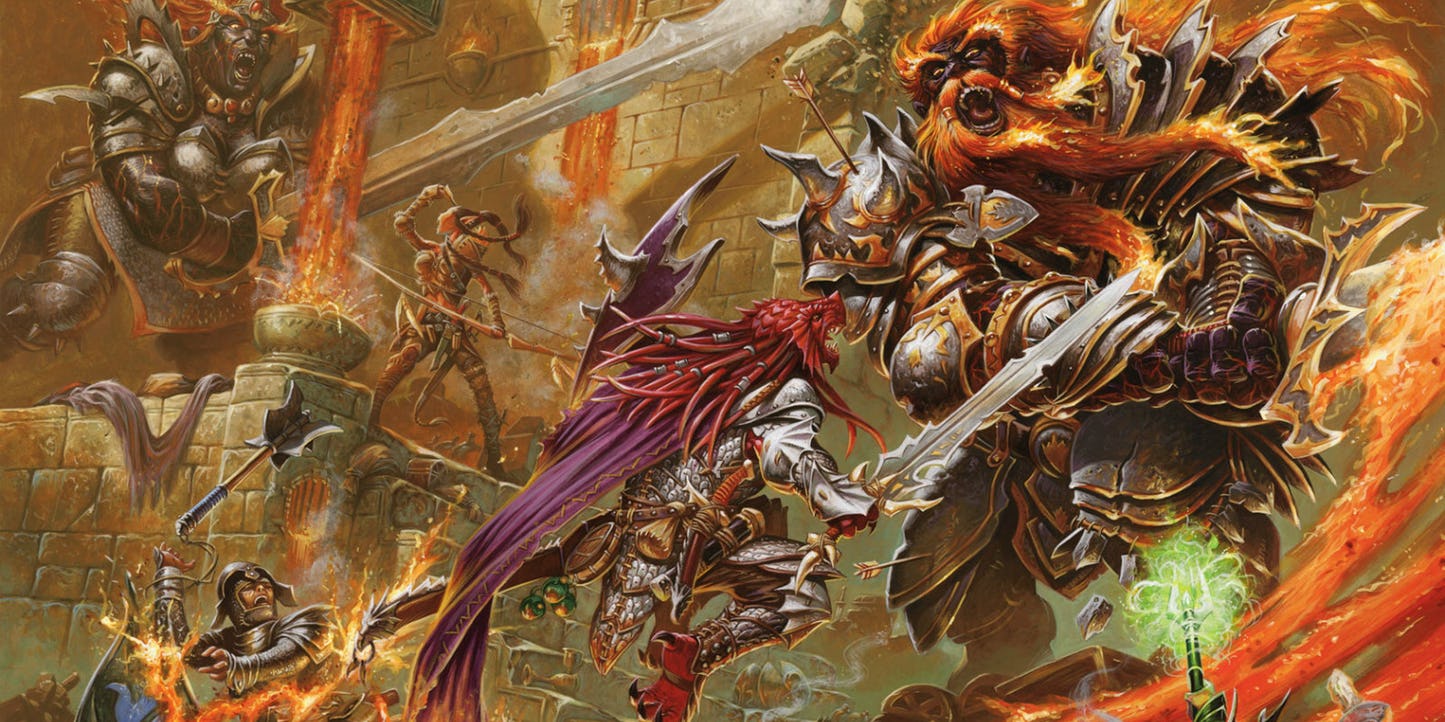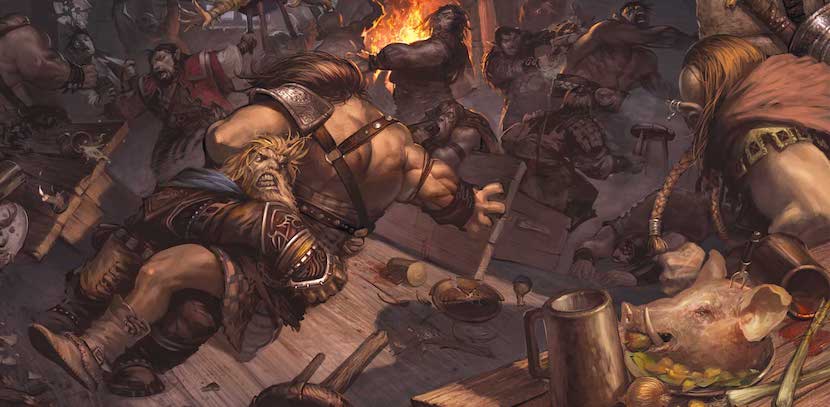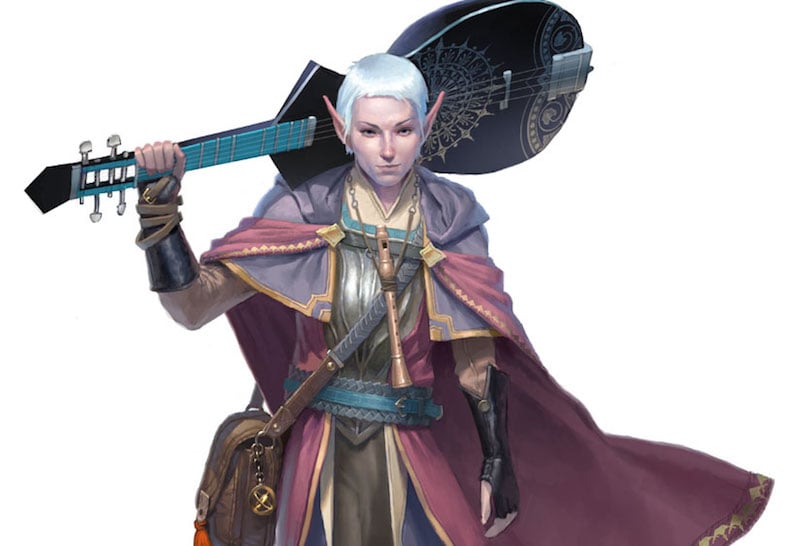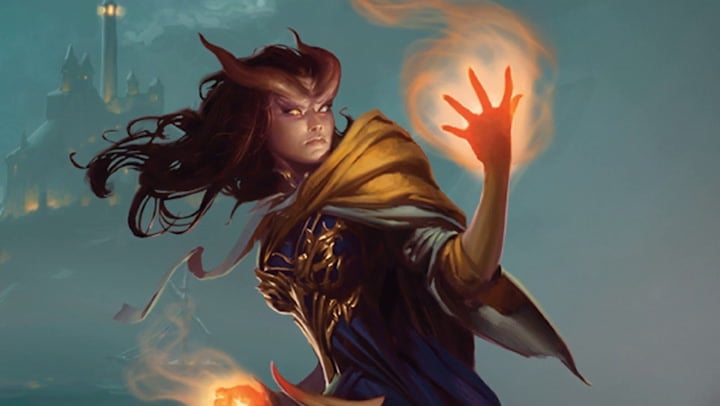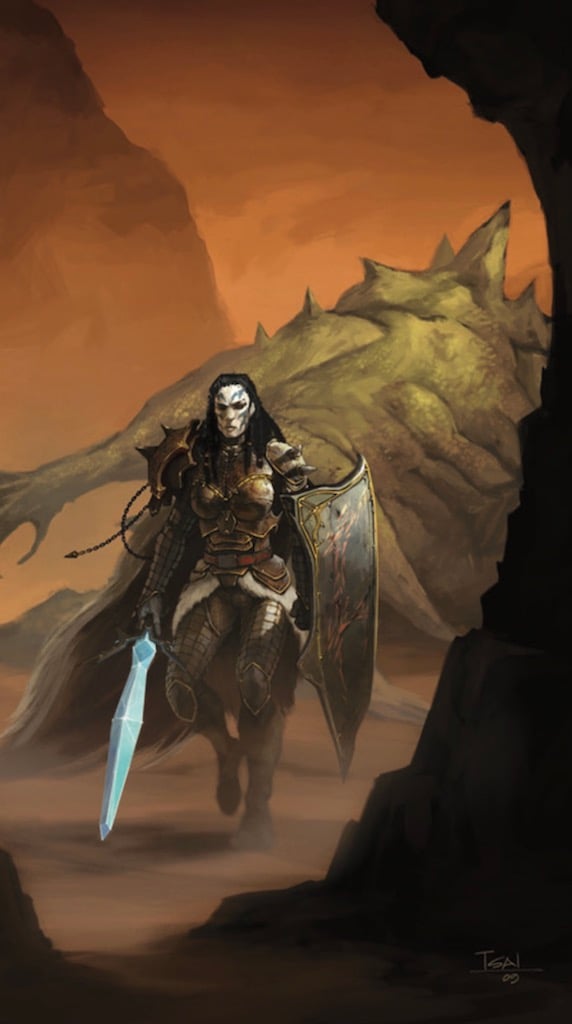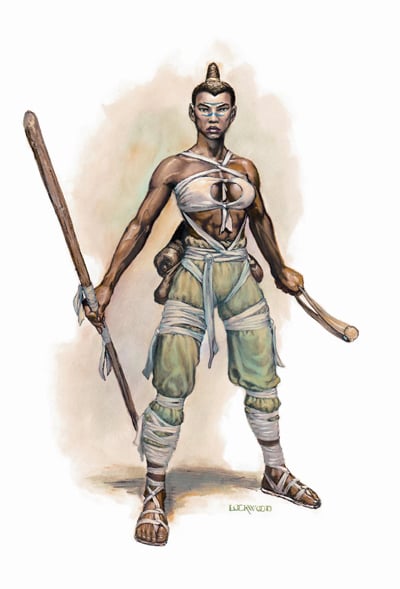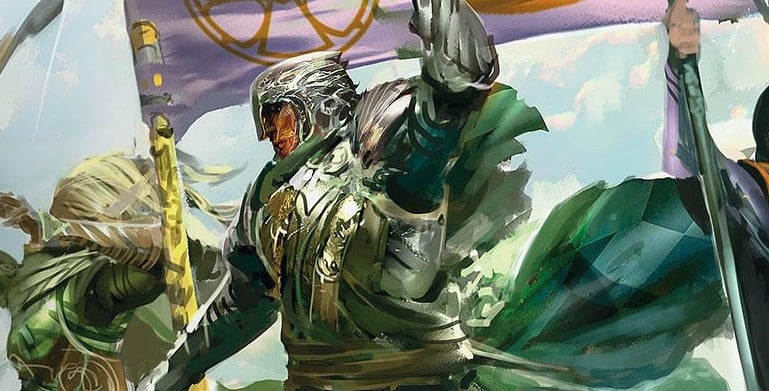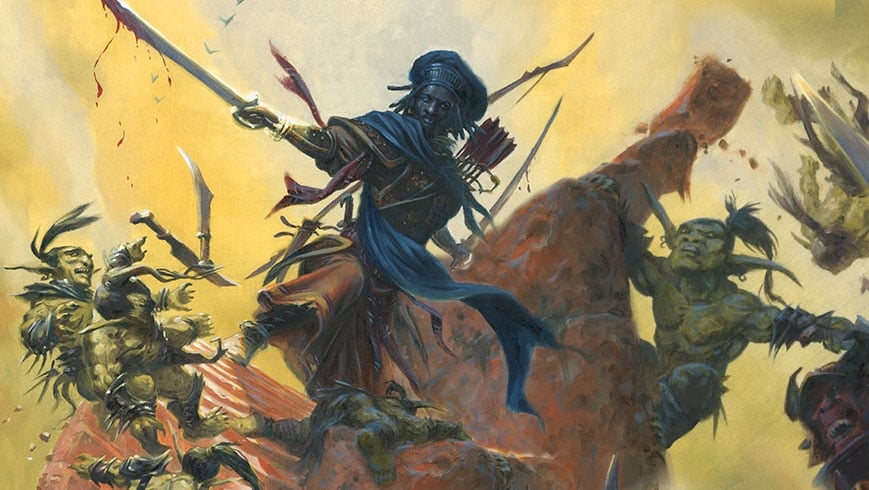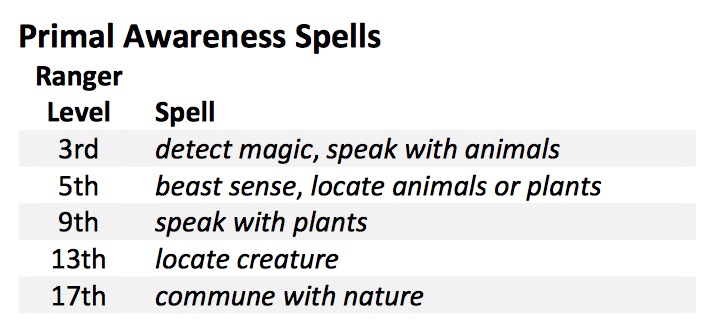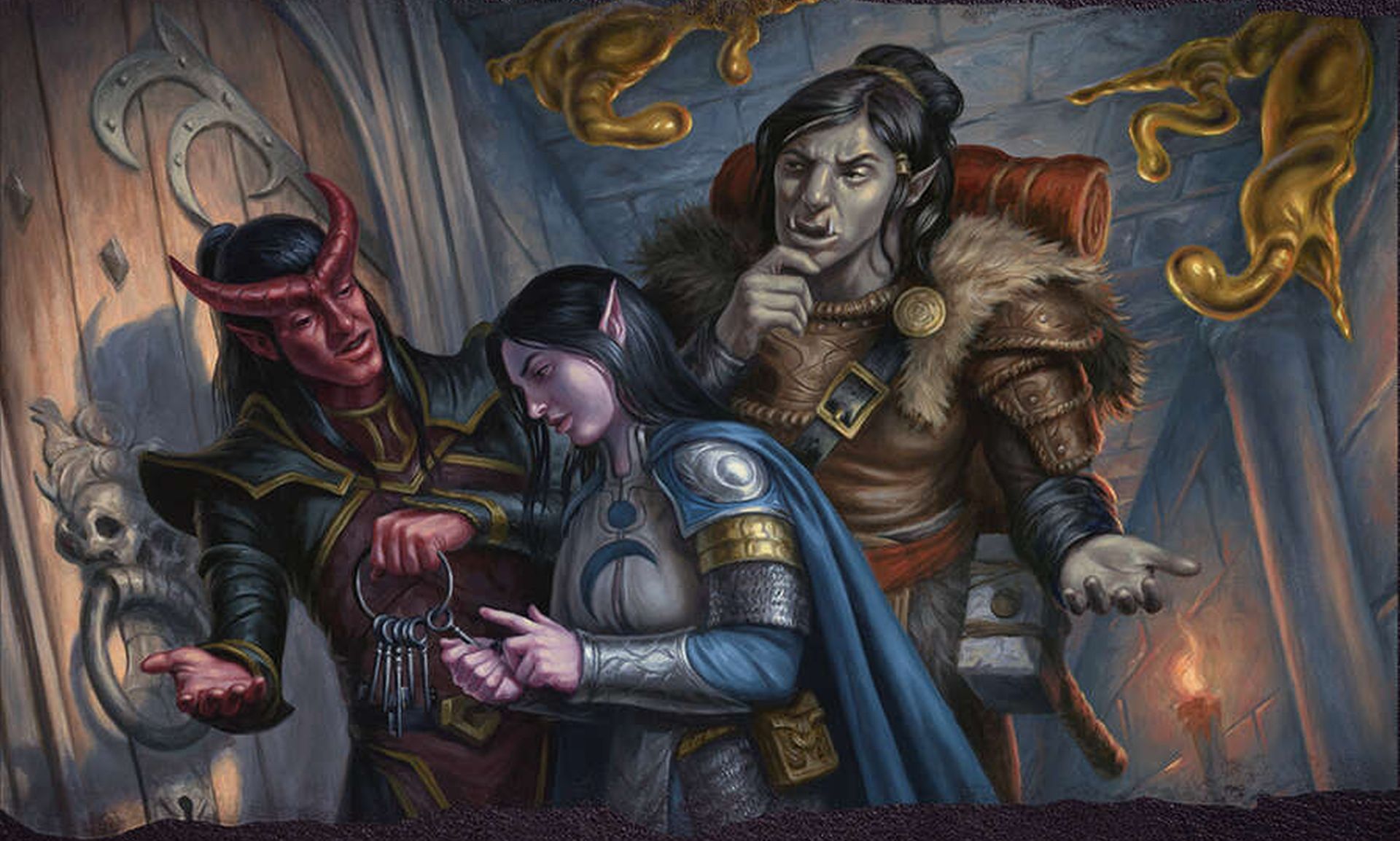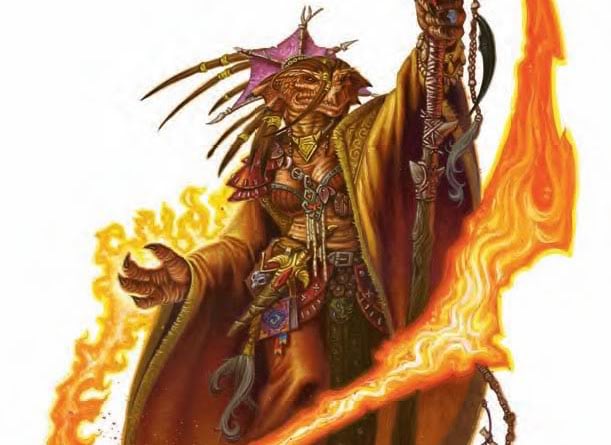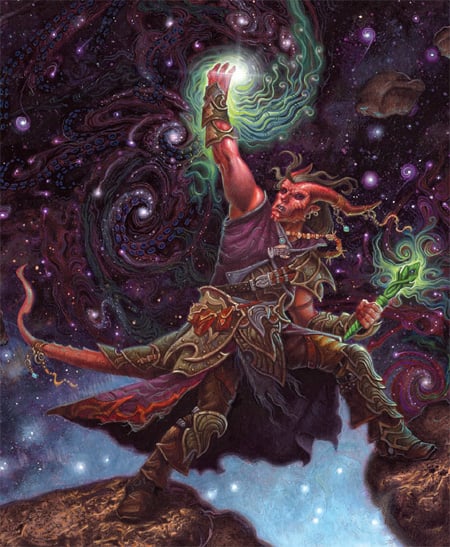D&D: Well This Changes Everything – Massive New Unearthed Arcana For Core Class Features
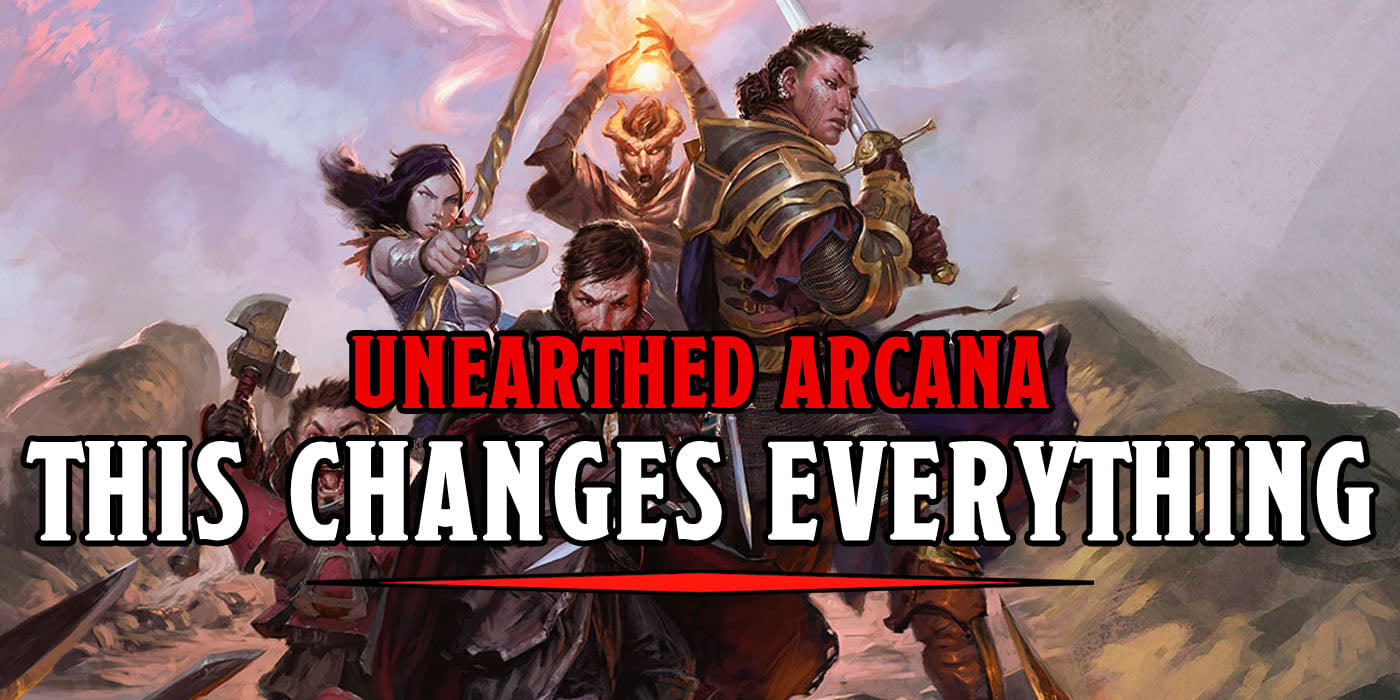

A massive new Unearthed Arcana takes aim at the core features of every class, including a big overhaul for the Ranger, and most spellcasters.
All eleven of D&D’s core classes are packed with a ton of features that help define them outside of whatever subclass you layer atop them. And in their latest Unearthed Arcana, WotC aims to shake things up with a list of substantial changes for every one of the classes. The changes are aimed at the lower level features–which makes sense, considering that 90& of D&D play happens in that 1st-5th level range–and they generally fall into one of two categories. Changes that enhance an existing class feature, or that replace a class feature entirely.
There are a ton of changes here, so let’s go through and unpack them.
via Wizards of the Coast
Versatility is the name of the game here, as you’ll soon see–most of these changes are aimed at giving players a lot more flexibility. Especially since most D&D games never make it past those first few levels, getting to swap things around and make new choices feels more rewarding. And it prevents you from feeling locked into certain choices at the start of the game. This is extremely visible in the first universal change, applicable to every class: Proficiency Versatility. This feature enhances your Ability Score Improvement feature, and makes it so that any time you gain an ASI, you can also replace one of your skill proficiency offered by the class you took at 1st level, which represents your skill atrophying as you focus on a different skill.
There are a few other ‘shared versatility changes’ that add to multiple classes. Socerers, Warlocks, Rangers, and Bards all gain Spell Versatility, which allows them to replace a spell known from their list with another spell of the same level from the same list whenever you finish a Long Rest. This is huge–it basically makes every spellcasting class except Wizards (and Arcane Trickers/Eldritch Knights) function like a Cleric, Druid, or Paladin. At least a little. You can effectively change out one spell per day, so if you spend a while resting in town or not fighting, you could have a whole new spell list. You no longer have to feel locked in for an entire level based on what spells you thought you might want. This is incredibly forgiving to new players, and it adds a ton of flexibility to these casters.
It makes Wizards a lot more DM-dependent, because if they don’t get routine access to new spellbooks and the money to copy them over into theirs, they suddenly lose the flexibility that makes them stand out from other spellcasters. Druids, Clerics, and Wizards all gain Cantrip Versatility which allows you to swap one Cantrip you learn with another cantrip from your class list whenever you gain a level.
And on top of it, all of the spellcasting classes get access to extra spells on their list, which you can find in the full document.
Not to be outdone, Martial classes with Fighting Style options all gain Martial Versatility which lets you replace a fighting style you know with another style available to your class any time you gain a level in a class with that feature, representing your focus on a given fighting style. It’s reflective of your training and lets you swap around how you’re fighting. In addition, there are four new “universal” fighting styles available to Fighters, Paladins, and Rangers:
- Blind fighting – you can fight against creatures you can’t see without disadvantage (unless it’s hidden)
- Interception – you can use your reaction to reduce the damage a target next to you takes by 1d10 + your proficiency bonus
- Thrown weapon fighting – you can draw a thrown weapon as part of the attack you make (finally) and gain +1 bonus to damage
- Unarmed fighting – you can punch real good, dealing 1d6 + your Strength modifier, unless you strike with two free hands in which case it’s 1d8 + Strength modifier. And any time you start a grapple, you can deal 1d4 bonus bludgeoning damage to your target (and can keep adding this any time you hit your grappled creature with a melee attack).
Those last two in particular are melee options that enable so many more play styles. The thrown weapons dilemma no longer need vex everyone, to the relief of just about everyone who wants to hurl axes, shuriken, knives, or Gambit. There are other fighting styles introduced for the Martial Classes, but those fall under their individual entries, so we’ll get to those one by one.
This is just a ton of extra flexibility for every class, which honestly feels like it gives the game a breath of fresh air. You don’t feel trapped by your choices because you thought True Strike would be a good spell–and it makes Sorcerers feel like they have some real utility without needing to sacrifice your ability to do damage. And, you can try those other spells that can’t compete with Fireball without worrying about losing your ability to do that when you need to. Everyone’s a cleric now baybee! Well, sort of. Anyway, on to the classes.
Barbarian
Barbarians have some fun options to their 2nd and 5th level class features, which they can take in lieu of the normal benefits at those levels. So 2nd level barbarians can choose between Danger Sense (which is advantage on Dex saves against things you can see) and the new Survival Instincts, which gives you proficiency with two of: Animal Handling, Medicine, Nature, Perception, or Survival, and lets you roll double your proficiency bonus with your chosen skills, so you can borrow the rogue/bard’s expertise.
5th level barbarians, meanwhile, get to choose between Fast Movement (the flat +10 feet to your movement speed) and Instinctive Pounce which lets you use your reaction to move up to half your speed–without provoking opportunity attacks–to a space closer to a creature ending its turn within 15 feet of you. Especially good if you have a damaging aura or the like.
Bard
Bards get Magical Inspiration, which lets your allies now use your Bardic Inspiration die to add to the damage or healing roll of the spell they do (against one target only it if’s an AoE spell though). They also gain a ton of new spells including things like Cause fear and Heroes’ feast.
Cleric
Clerics get expanded spell lists, including some of the previous Paladin-only smite spells, as well as gaining an enhanced feature for Channel Divinity. The new feature Harness Divine Power lets you spend one use of your Channel Divinity as a bonus action to regain an expended 1st-level spell slot.
At 8th level clerics now gain Blessed Strikes which gives you the option to deal 1d8 extra radiant damage whenever a creature takes damage from one of your spells or weapon attacks, meaning you no longer have to choose between casting spells or doing damage, and a number of cleric builds suddenly felt new life being injected into them.
Druid
Druids have some new spells added to their class, including many elemental spells previously excluded. They also gain Wild Companion which allows you to spend one use of your Wild Shape feature to cast Find Familiar without needing to have any material components. Doing this gives you a temporary familiar that does all the things familiars do, but it leaves after a number of hours equal to half your druid level.
Fighter
Fighters gain extra fighting styles–all the ones listed above plus a new one aimed at martial maneuvers: Superior Technique. This works like the Martial Adept feat, granting fighters that take this style an extra d6 superiority dice that can be used to fuel one maneuver of your choice from the maneuvers available to the Battle Master archetype.
Fittingly they also gain Maneuver Versatility which allows you to swap out maneuvers that you know from the Battle Master archetype with a different maneuver any time after you finish a long rest. This is huge, letting you adopt a custom fighting style for a whole day. Swap from tripping people to defending yourself and so on. Try everything, including the following new maneuvers that are introduced in the Unearthed Arcana!
- Ambush – Spend one of your superiority dice and add it to a Stealth or Initiative roll
- Bait and Switch – Spend one of your superiority dice and switch places with an adjacent ally as part of a move, then roll your superiority die and add that as a bonus to your ally’s AC
- Brace – Use your reaction (and a superiority die) to make one weapon attack against a creature that moves within 5 feet of you. If it hits, add that number to your damage roll–take that Sentinel Feat users.
- Restraining Strike – Immediately after hitting a creature with a melee weapon attack, spend a superiority die and a bonus action to grapple your target and add to your Athletics check. While grappled because of this maneuver, your opponent is restrained as well.
- Silver Tongue – Add a superiority die to your Deception and Persuasion checks
- Snipe As a bonus action, make a ranged weapon attack and add your superiority die to the damage roll
- Studious Eye – Add a superiority die to a Wisdom or Intelligence check
These are some spectacular options, and now you can hot swap them in when you need to.
Monk
Monks now no longer need to be bound by the traditional monk weapons. Any monk can, like a kensai, pick weapons to be Monk Weapons for themselves. Choose 5 + your Wisdom modifier different weapons that are simple/martial, you’re proficient with, and aren’t heavy, special, or two-handed, and make them monk weapons for the purposes of your class.
Add to that Ki-Fueled Strike which lets you take a bonus action unarmed strike any time you spend 1 ki or more as part of your action on your turn–a huge boon to the classes who spend ki to do actions that aren’t supplemental attacks. Rejoice Way of the Four Elements monks.
But wait there’s more, you also gain two new ways to spend Ki. Distant Eye which lets you spend 1 ki point to prevent attacking at long range from imposing disavandtage on your attack rolls, and Quickened Healing which lets you spend 2 ki points to roll a Martial Arts die and regain that many hit points.
Paladin
Paladins get an exciting new fighting style, in addition to the ones listed above: Blessed Warrior which gives you access to two cantrips from the Cleric list. This is a huge option for more caster/charisma focused paladins, who often will dip into Warlock and, hexblade in particular, to fight with charisma. You can swap out one of your cantrips any time you gain a level.
Paladins also enjoy an expanded spell list including Spirit Guardians which will make high-level Paladins incredibly strong in a big protracted fight. They also gain the Harness Divine Power option, which lets you spend a bonus action to regain an expended 1st-level spell slot.
Ranger
Rangers get a massive overhaul to their first level features. Where once Natural Explorer (aka favored terrain) meant you had to pick a single type of favored terrain and good luck if you picked something your campaign didn’t focus on–now you can take Deft Explorer which feels like the answer people have been waiting for. Deft Explorer lets you pick form the following options at 1st, 6th, and 10th level:
- Canny – Choose from a list of skills and gain double proficiency bonus with your list of skills, and speak, read, and write two extra languages of your choice
- Roving – Gain a 5 foot increased movement speed, also gain a climbing and swimming speed equal to your walking speed
- Tireless – As an action, give yourself 1d10 + wisdom modifier temporary hit points that last until they’re gone. You can do this a number of times per day equal to your Wisdom modifier. Also whenever you finish a short rest, your exhaustion level is reduced
There are also big changes to the way Favored Foe works. Now instead of picking a single category of creatures and gaining bonuses to track them, you can just cast hunter’s mark, for free, on them, without needing to spend a spell slot AND without requiring concentration. You can do this up to your Wisdom modifier times per day–and this fixes Ranger Spellcasting so much. Also rangers get extra spells on their list, and now can swap out one spell every time they finish a long rest, and they know hunter’s mark without having to count it as a spell they know.
Rangers also get a new Fighting Style option, in addition to the ones listed above: Druidic Warrior, which gives you two cantrips of your choice from the druid spell list. Shillelagh is looking quite good for you Wisdom heavy rangers now.
But we’re not done. This is a huge overhaul for the Ranger. They also gain a new Primeval Awareness feature which replaces the old useless one. What did the old one even do? Do you know without looking it up? It lets you know if there are creatures of a certain type within a mile. AND it cost a spell slot to use. AND it doesn’t reveal the number of creatures or location. It’s worse than useless. But the NEW Primeval Awareness is not only a list of bonus spells that go onto your list without counting against spells known–it’s a list of spells you can cast one per day without expending a spell list.
And we’re still not done. Rangers can also cast with a Druidic focus now, which they honestly should always have been able to do. They gain an alternate option for their hide in plain sight feature, Fade Away, which lets you use a bonus action to become invisible until the start of your next turn. Presumably you can still attack, since it’s not casting the spell invisibility and it doesn’t say that attacking breaks it.
And all you Beast Master rangers can breathe easy. That class is getting the fix it has been needing since the dawn of 5th Edition. Now you can gain an animal companion that fits a primal archetype. Instead of picking from the list of beasts in the monster manual, you can choose one of two stat blocks, the Beast of the Air or the Beast of the Earth, both of which have their own special attacks that they can use whenever you spend a bonus action, hit points (better than a generic beast, but not so much that they’re a full on extra PC in the party), and you can spend a spell slot to revive them if and when they die. They don’t overshadow you, but still feel like an extension of your class.
Rogue
Rogues are already pretty great. They don’t get much except a new Cunning Action: Aim. This lets you spend a bonus action to gain advantage on your next attack roll, which is absolutely perfect, but it comes with a caveat. You can’t move on the turn you do this, and your movement speed becomes 0 until the end of your turn. Great for rogues that are already stuck in combat, or that are braced up somewhere and sniping with their crossbow within 30 ft.
Sorcerer
In addition to the spell versatility feature outlined above, Sorcerers get some new options for their Font of Magic feature that give them new ways to spend their sorcery points.
- Empowering Reserves – spend 2 sorcery points to gain advantage on an ability check on your turn
- Imbuing Touch – spend 2 sorcery points and make a nonmagical weapon count as magical for 1 minute
- Sorcerous Fortitude – spend any number of sorcery points and roll thatmany d4s, then gain the total as temporary hp
Sorcerers also have three new Metamagic Options
- Elemental Spell – spend 1 sorcery point to change a spell’s elemental damage from one type to another–only works on acid, cold, fire, lightning, or thunder though
- Seeking Spell – spend 1 sorcery point to ignore half and three-quarters cover when making a spell attack or casting a spell that requires a dex save
- Unerring Spell – spend 2 sorcery points to reroll a missed spell (as long as it needed an attack roll in the first place), you can do this after the roll and even if you have already used a different Metamagic option to cast the spell
Warlock
In addition to the spell versatility feature outlined above, Warlocks get new spells (including animate dead and greater invisibility), and a new Eldritch Pact boon, the Pact of the Talisman which is a special amulet that lets whoever wears it add d4 to any ability check they make that they are not proficient with. You can pass this talisman around to friends to share the wealth.
Warlocks also gain a host of new Eldritch Invocations, though none are as good as Agonizing Blast, and they all are meant to work off of one of your Pact features.
Wizard
Wizards gain cantrip versatility, as their cleric and druid compatriots do, and four new bonus spells: augury, enhance ability, speak with dead, and divination.
This isn’t official, but it does give you a great look at where D&D is headed. Whatever book is coming out looks like it’s going to add a TON of stuff to the game. This feels like it could be a Player’s Handbook II, kind of sourcebook now. So keep an eye out, 2020 is going to be wild.
What do you think of these new features? Let us know in the comments!

